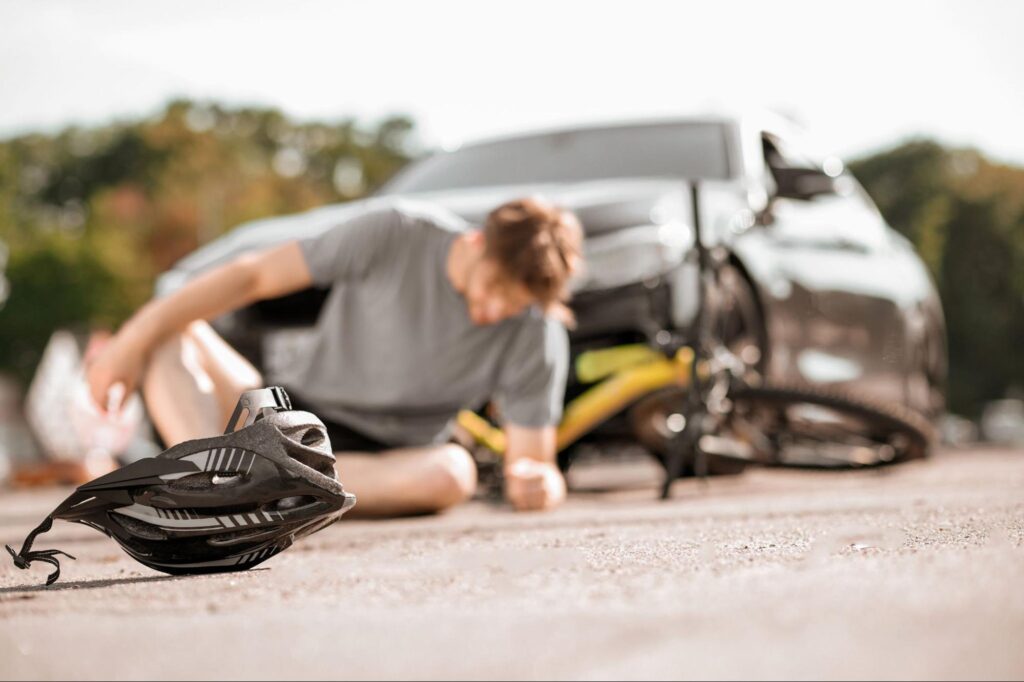
Leaving the scene of an accident ga, commonly referred to as a hit-and-run, is a serious offense in Georgia. The repercussions can vary significantly based on the circumstances of the accident and the parties involved.
This article explores Georgia’s hit-and-run laws, the consequences of fleeing, factors influencing penalties, legal defenses available to defendants, and the importance of legal representation in such cases. Understanding these elements is crucial for those involved in a car accident in the Peach State.
Understanding Georgia’s Hit-and-Run Laws
Definition of a Hit-and-Run in Georgia
In Georgia, a hit-and-run is an incident in which a driver involved in an accident does not stop to provide information, assist the injured, or report the accident to the authorities. This can occur in a wide range of scenarios, including collisions with other vehicles, pedestrians, or property.
The law mandates that drivers exchange their names, addresses, and vehicle registration numbers with the injured parties. If anyone is injured or killed, the driver must also provide reasonable assistance, such as calling for medical help.
Hit-and-run incidents can have serious consequences not only for the victims but also for the fleeing driver. In many cases, the emotional and physical toll on victims can be profound, leading to long-term medical issues and financial burdens due to medical bills and lost wages.
Additionally, the psychological impact of such an incident can leave victims feeling vulnerable and unsafe on the road. Understanding the ramifications of a hit-and-run can encourage drivers to act responsibly and stay at the scene, as the law is designed to protect all parties involved.
Legal Obligations After a Car Accident
In Georgia, the legal obligations following an accident are clear. A driver must:
- Stop their vehicle immediately at the scene.
- Check for injuries among other individuals involved in the accident.
- Exchange pertinent information with other drivers or witnesses.
- Call the police if there are injuries or significant damage.
Failing to adhere to these obligations can result in severe criminal charges, highlighting the importance of understanding and complying with Georgia’s laws after an automobile accident.
Additionally, the legal framework surrounding hit-and-run incidents is designed to deter reckless behavior on the roads. Penalties for leaving the scene can range from hefty fines to imprisonment, depending on the severity of the accident and whether injuries occurred.
This strict enforcement reminds us that accountability is essential to maintaining road safety and ensuring that victims receive the assistance they need promptly.
Furthermore, drivers should be aware that leaving the scene can significantly complicate matters, even if they believe they are not at fault. Insurance claims may be adversely affected, and the fleeing driver may face civil lawsuits from injured parties seeking compensation for damages.
Thus, it is crucial for all drivers to remain at the scene of an accident. This will ensure compliance with the law, protect their own interests, and contribute to a safer driving environment for everyone.
Consequences of Fleeing the Accident Scene
Criminal Penalties for Hit-and-Run
The criminal penalties for leaving the scene of an accident in Georgia can be quite severe. If convicted of a hit-and-run, the penalties may include:
- Fines ranging from $300 to $1,000.
- Imprisonment for up to a year for misdemeanor offenses.
- Felony charges lead to incarceration for up to five years if serious injuries or fatalities result from the accident.
These penalties reflect the state’s strong disapproval of fleeing an accident scene, particularly when others may be in peril. The law is designed to punish offenders and deter reckless behavior, emphasizing the importance of accountability on the road.
Additionally, a hit-and-run conviction can lead to a permanent criminal record, which may have long-lasting effects on employment opportunities, travel, and personal relationships.
Civil Penalties and Lawsuits
In addition to criminal charges, a driver who flees the scene may face civil consequences. Victims may file lawsuits seeking compensation for damages, including:
- Medical expenses for injuries sustained in the accident.
- Property damage costs.
- Pain and suffering damages.
These civil penalties can result in significant financial burdens for the fleeing driver, compounding the legal troubles faced after a hit-and-run incident.
Victims often pursue these civil claims vigorously, especially when they have incurred substantial medical bills or lost wages due to their injuries. Furthermore, insurance companies may also take action against the driver, leading to increased premiums or even denial of coverage.
The emotional toll on victims can be profound, as they may experience anxiety, depression, or post-traumatic stress disorder (PTSD) stemming from the accident, which can further complicate their recovery process.
Factors Influencing the Severity of Penalties
Involvement of Injuries or Fatalities
The presence of injuries or fatalities at the accident scene significantly influences the severity of penalties. When victims suffer injuries, especially serious injuries, the charges escalate, leading to felony charges and harsher sentences.
Particularly egregious actions, such as hitting a pedestrian or another vehicle without stopping, can provoke community outrage and elevate the case’s profile. The emotional impact on victims and their families often fuels public demand for justice, which can sway legal proceedings and juries’ attitudes.
In instances where a fatality occurs, the culpability is viewed through a more critical lens, leading to more severe punitive measures, including longer prison sentences and larger civil damage claims from bereaved families.
The legal ramifications are compounded by the potential for wrongful death lawsuits, which can impose additional financial burdens on the offender. Moreover, the psychological toll on the perpetrator can be significant as they grapple with the consequences of their actions, often leading to long-lasting guilt and regret.
Previous Criminal Record
A driver’s prior criminal record is crucial in determining the penalties for leaving the scene. Individuals with a history of traffic violations or criminal offenses may face steeper consequences if caught fleeing an accident scene.
This is because the legal system often considers repeat offenders to be less likely to rehabilitate. The pattern of behavior demonstrated by a prior record can lead to assumptions about a driver’s character and responsibility, influencing both plea deals and trial outcomes.
Judges may impose additional fines or longer sentences for those with prior convictions, making it important for drivers in Georgia to be mindful of the laws and their driving history. Furthermore, the implications of a criminal record extend beyond immediate legal penalties; they can affect employment opportunities, insurance rates, and even personal relationships.
As such, individuals are often encouraged to seek legal counsel to navigate the complexities of their situations, especially if they have a history that could exacerbate their current legal troubles.
Legal Defenses for Leaving the Scene

Lack of Knowledge About the Accident
When charged with a hit-and-run, defendants may argue that they were not aware that an accident occurred. This defense can be applicable in scenarios where minimal contact occurred or in situations where the driver was distracted and did not realize they had hit another vehicle or object.
For this defense to hold, there must be a reasonable explanation as to why the driver did not recognize the accident. Such arguments can involve witness testimonies or physical evidence demonstrating the minor nature of the incident.
For instance, if a driver lightly brushed against a parked car while navigating a tight space, they might not have felt the impact. In this case, they could present evidence showing that the contact was so slight that it was virtually undetectable.
Additionally, technology such as dashcam footage can play a crucial role in supporting this defense, as it may capture the moments leading up to the incident, providing context that the driver genuinely believed they were driving safely.
Emergency Situations
Another potential defense is that the driver left the scene due to an emergency situation, such as needing urgent medical care or dealing with a threat. In these cases, demonstrating the necessity of leaving the scene can mitigate the consequences faced by the driver.
However, this defense would require substantial evidence, such as medical records or police reports, to validate the urgency and necessity of fleeing the scene of the accident. For example, if a driver was involved in a collision but then received a call indicating that a family member was in a critical situation, they may argue that their immediate departure was justified.
Furthermore, the presence of witnesses who can corroborate the driver’s account of the emergency can strengthen this defense.
Establishing a clear timeline and context surrounding the incident is essential to illustrate that the driver’s actions were not reckless but rather a response to an unforeseen and pressing circumstance.
The Role of Legal Representation in Hit-and-Run Cases

Navigating the Legal System
Legal representation is essential for individuals facing hit-and-run charges and can significantly impact the outcome of the case. A skilled attorney can provide insight into the complexities of Georgia’s traffic laws and assist in building a robust defense tailored to the specifics of the incident.
Furthermore, a lawyer can help clients navigate the stress of legal processes, protect their rights, and ensure that proper procedures are followed throughout the judicial process. This is especially critical given the potential ramifications of a hit-and-run charge, which can affect a driver’s personal and professional life.
The emotional toll of being involved in such a case can be overwhelming, and having a dedicated legal advocate can alleviate some of that burden. Attorneys often act as a buffer between their clients and the legal system, allowing individuals to focus on their personal lives while their legal matters are handled by a professional.
Negotiating Plea Deals and Sentences
In many cases, attorneys can negotiate plea deals on behalf of their clients. Plea bargains may reduce the charges or penalties in exchange for a guilty plea, which can minimize the consequences of a hit-and-run conviction.
Legal professionals can work to leverage factors such as a clean driving record or mitigating circumstances surrounding the accident to negotiate more favorable outcomes.
Effective legal representation can make a significant difference in securing a lighter sentence and moving toward an optimal resolution.
Additionally, skilled attorneys are adept at presenting evidence that may not be immediately apparent, such as witness statements or accident reconstructions, which can further support their client’s case.
They can also advise clients on the potential long-term impacts of a plea deal, ensuring that individuals make informed decisions that align with their future goals.
Understanding the broader implications of a hit-and-run charge, including how it may affect insurance rates and employment opportunities, is crucial, and a knowledgeable lawyer can provide essential guidance in these areas.
Conclusion
In conclusion, it is crucial for all drivers to understand the penalties for leaving the scene of an accident in Georgia. Familiarity with the laws, potential consequences, and the importance of legal defense can help mitigate the serious repercussions associated with hit-and-run incidents.
The complexities of these cases underscore the value of having knowledgeable legal representation to successfully navigate potential legal challenges.
Howe Law is here to help if you’re facing legal challenges related to a hit-and-run or any other traffic offense. Call us today at 888-559-7033 for a free consultation, available 24/7, or visit us at Howe Law. Let us provide the trusted representation you need to protect your rights and your future.
Related Articles


























































